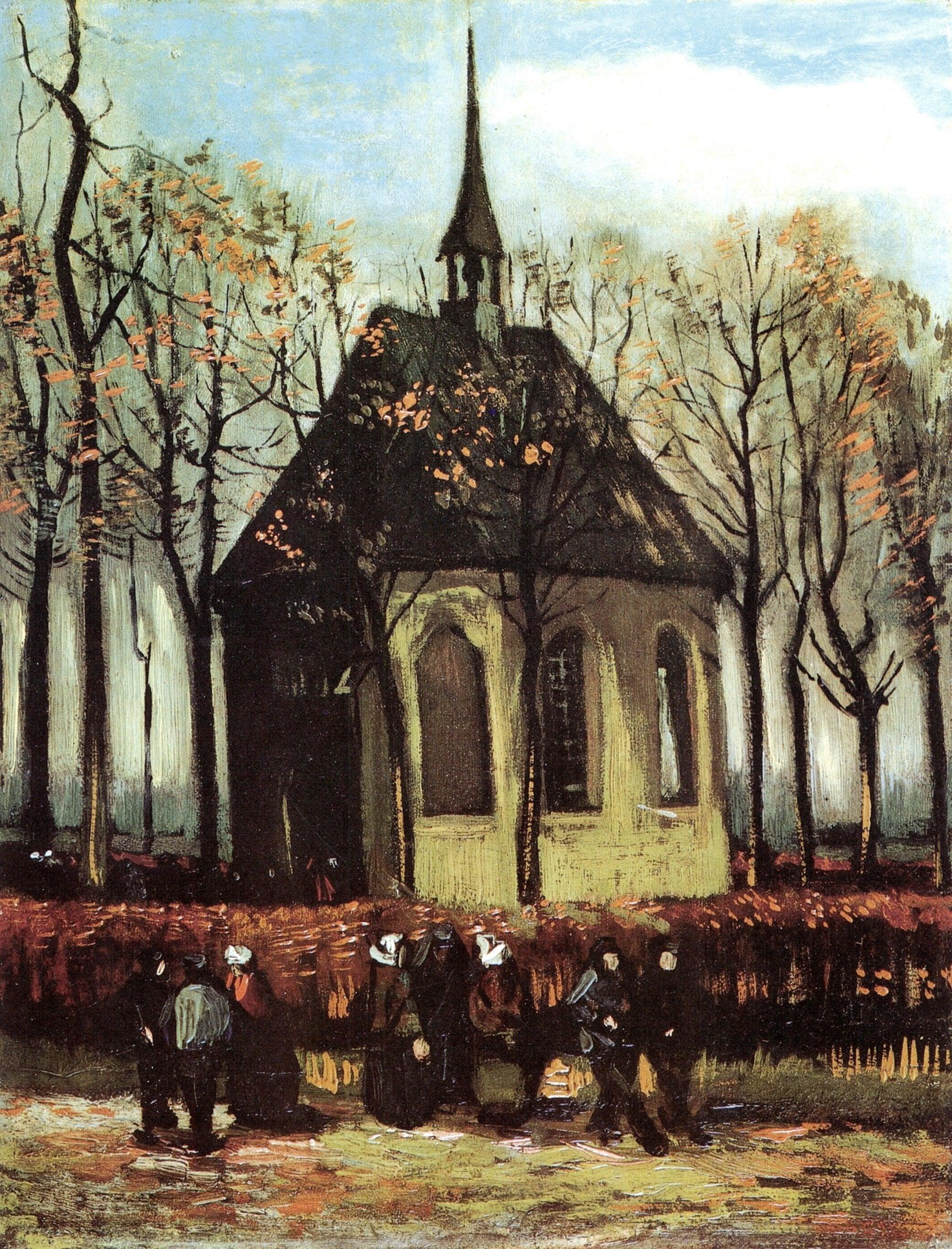Description
The Church of Nuenen with the Parishioners is one of the most emblematic works of the famous Dutch painter Vincent Van Gogh. This painting, made in 1884, represents the church of the small village of Nuenen, where the artist lived for two and a half years.
Van Gogh's artistic style is characterized by his thick brushwork technique and intense use of colour. In this work, we can appreciate how the artist uses a palette of warm and vibrant colors to represent the church and the parishioners inside.
The composition of the painting is very interesting, as Van Gogh uses the church as a focal point and surrounds it with a crowd of people who are in different positions and attitudes. This technique creates a sensation of movement and life in the work, which makes it a very dynamic and attractive piece.
The history of the painting is also very interesting. Van Gogh made this work as a commission from his father, who was a pastor at the Nuenen church. However, the work was not well received by parishioners, who considered it too modern and unconventional.
In addition, there are some little-known aspects of this work. For example, it is believed that Van Gogh used some of his friends and family as models for the parishioners featured in the painting. It has also been speculated that the artist included some symbolic elements in the work, such as the figure of the man at the bottom right of the painting, who could represent Van Gogh himself.
All in all, Nuenen Church with Parishioners is a fascinating work that combines Van Gogh's technique and artistic style with dynamic composition and an interesting story. This painting is a perfect example of the talent and creativity of one of the most important artists in the history of art.

